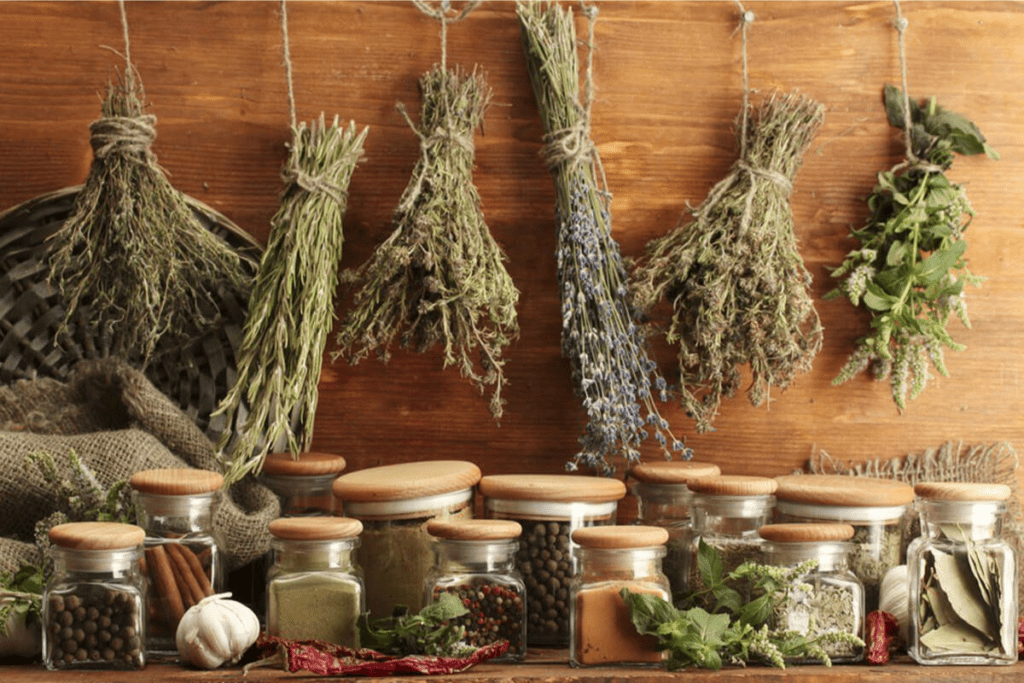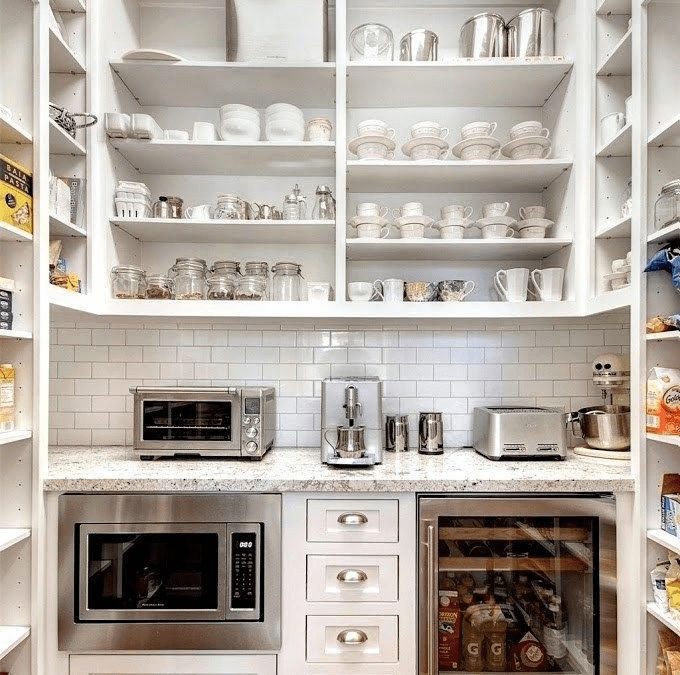A kitchen pantry is to be working at full capacity. So, it’s important to take some time to consider how to organize it best and how to keep it organized so you always have the right supplies on hand when you need them. Here are 8 tips for optimizing your kitchen pantry.
Know What You Eat
Before you go out and buy a ton of ingredients you never use, sit down and write a list of everything you have in your kitchen pantry. It’s easier to know what you need when you have an idea of what you already have on hand. So take some time to inventory your pantry contents and think about how much of each item your family goes through per month—and then use that list to shop more smartly. Going forward, if something is running low at home, add it to next week’s grocery list so that there isn’t a once in a blue moon situation in which half a dozen people suddenly realize they’re out of tapioca.
Do Not Go Overboard On Staples
It’s easy to get caught up in purchasing canned, boxed, and bagged items without ever taking stock of what you already have. Before buying anything new for your pantry, take an inventory of what you have on hand. That way, you can be sure that every item you purchase will find a good home in your kitchen. The last thing you want is to buy something just because it’s on sale only to realize later that it just doesn’t work with other items in your collection. Not only does doing an inventory help prevent food waste—it also helps you optimize your kitchen space so everything has a place where it belongs.

Use Smaller Containers
You may have fallen into a habit of buying several varieties of staples, but filling your pantry with large containers can backfire on you. Large containers are harder to use up quickly, which means they’re more likely to sit there and expire or get stale before you use them up. If you make yourself buy smaller items instead, it’s easier to keep your pantry stocked with fresh foods that you actually enjoy eating. It takes a little more thought each time you need something new. But it’s worth it in order to prevent that stack of cans from getting any taller. Plus, if you buy many of your items in bulk using coupons or special deals—and then store them in smaller amounts—you could end up saving quite a bit over time!

Keep Spices Fresh
Spices come in several forms—whole, ground, and paste. It’s best to store these in airtight containers to help them stay fresh longer. Whole spices should be stored in a cool, dark place away from sunlight or heat sources. Ground spices should be stored in a sealed container away from heat and sunlight as well. Herbs and citrus canisters also work well as long as they have an airtight seal.

Invest In Custom Cabinets
You don’t need to spend a fortune to optimize your kitchen pantry. But you do want to invest in custom cabinets. Not only will custom cabinets help increase storage space. Additionally, they can also provide you with additional room to store ingredients and supplies. If you’re trying to optimize your kitchen pantry. Moreover, consider investing in custom cabinets that can easily be reorganized as needed. Custom cabinetry not only looks professional and high-end, but it also helps make it easier for you and your family to find everything they need. Isn’t that what we all want? As an added bonus, if food is stored in a well-organized space (even if it’s not refrigerated). It will stay fresher longer and require less preparation before consumption.

Purchase Labels by the Roll
Write your pantry staples on labels and stick them to a whole roll of sticky notes. Stick them on your kitchen wall or some other location. So you can easily see what you have on hand at all times. You’ll always know what meals to cook or stock up on when you run out. It will be more likely that you’ll actually use everything in your cupboard. Also, if you buy things in bulk and don’t consume them as quickly as you should. Having all those items labeled helps curb impulse purchases. If there is already a label for an item, it helps deter our urge to buy something new even if we don’t really need it.

Store Beans and Grains Properly
These are some of your pantry staples, but they also tend to be among your most delicate foods. It’s best to store all beans and grains in airtight containers to reduce their exposure to moisture, heat, and light. Beans in particular have a tendency to attract bacteria if they aren’t stored properly—which can spoil them or give them an off-flavor. All of these substances benefit from being refrigerated when possible. If you don’t have room in your refrigerator, store them in cool dark places with low humidity levels. And for maximum freshness, rotate your stock every six months. So by using up what you have on hand before you replace it with fresh items. This helps prevent contamination over time by preventing food from getting old at once.
Shop Online
One of my biggest time-saving kitchen pantry-buying tips is to simply do as much as possible on Amazon. Not only does Amazon have everything you could ever want or need. But it also can be a fantastic time-saver if you use Prime and subscribe to its free monthly delivery service. With two-day shipping and hundreds of thousands of items at your fingertips, you’ll never have to waste time making trips back and forth to the store again. If you’re trying to optimize your kitchen pantry then it’s critical that you streamline your shopping experience through All Around Kitchen!


